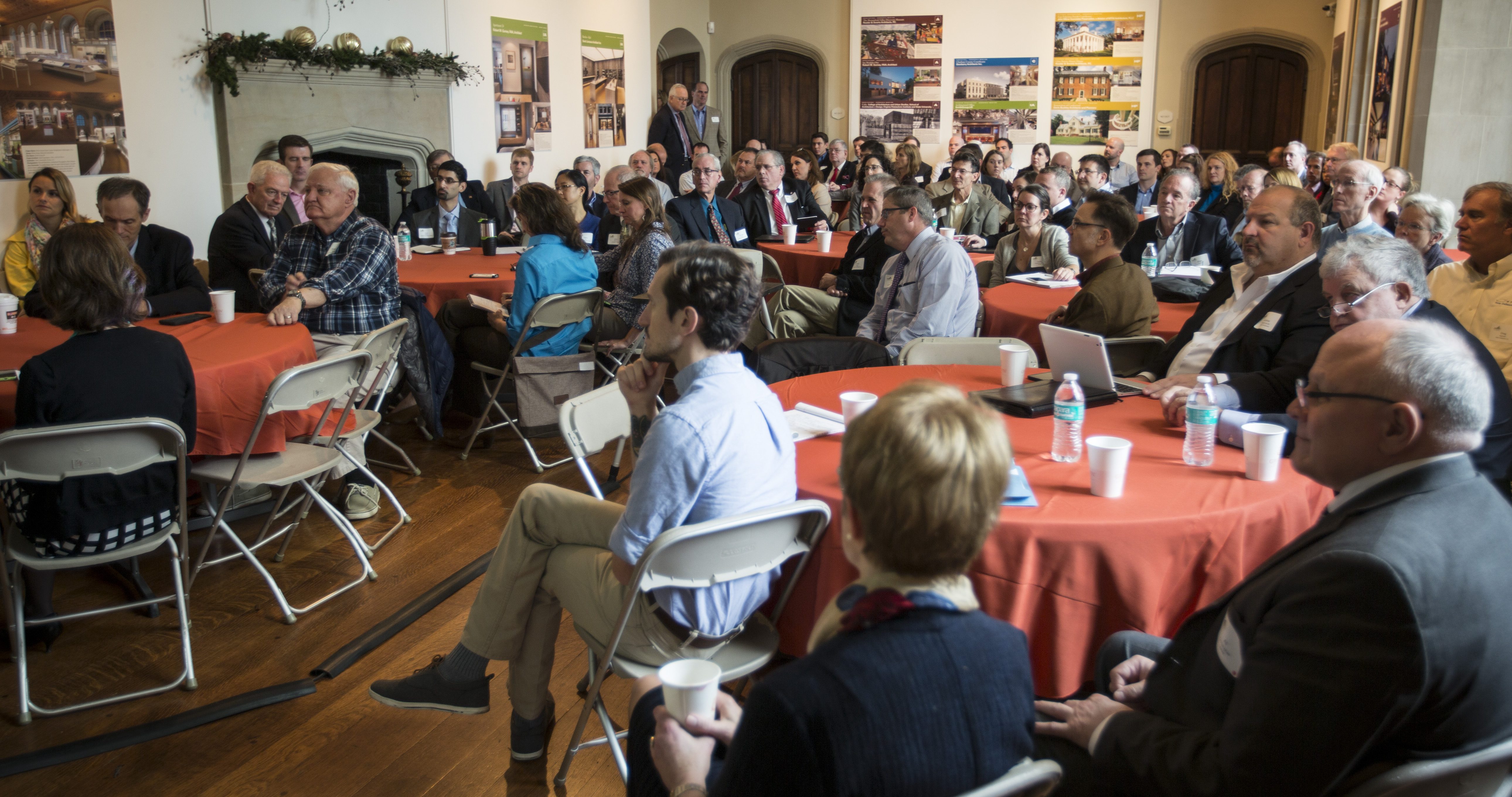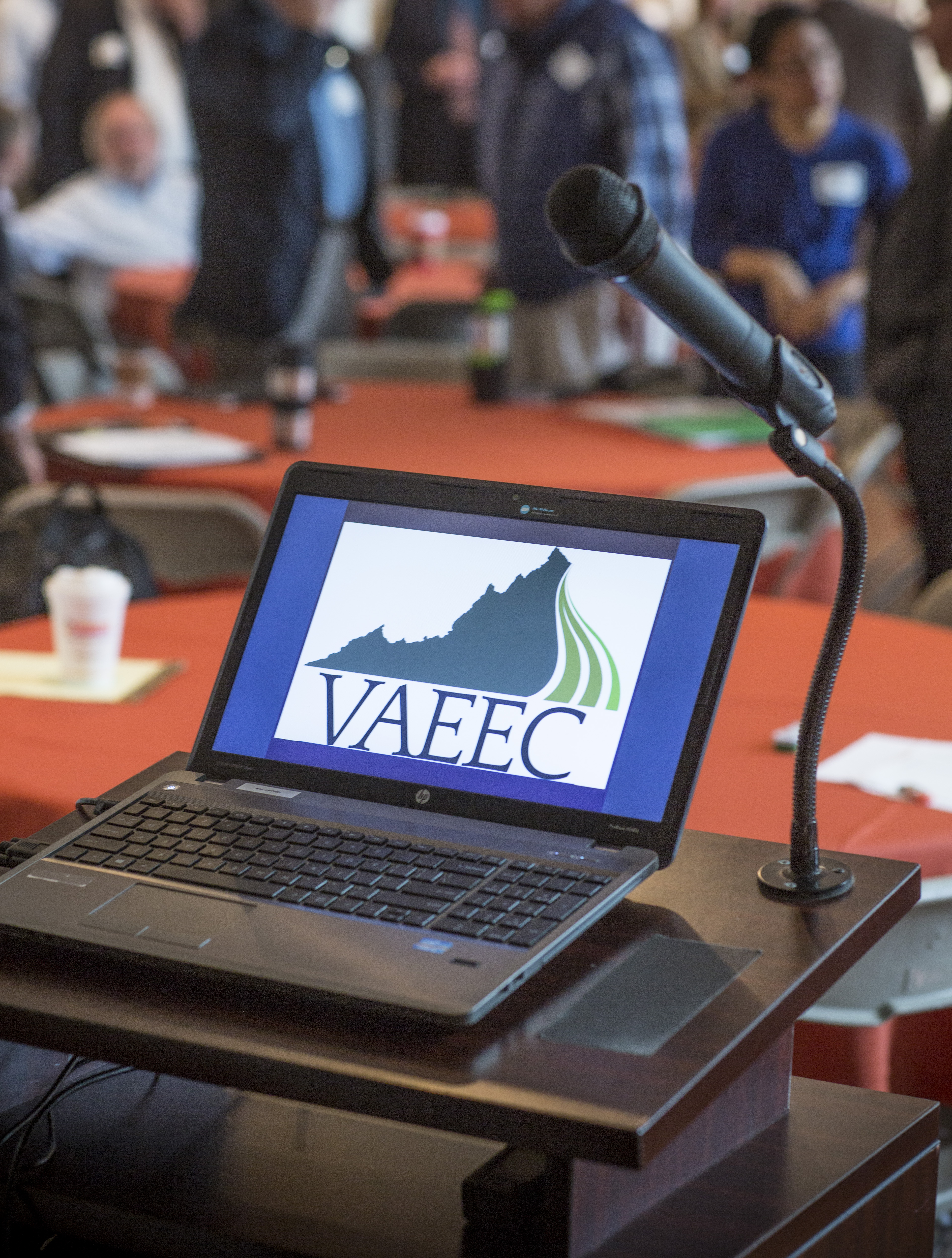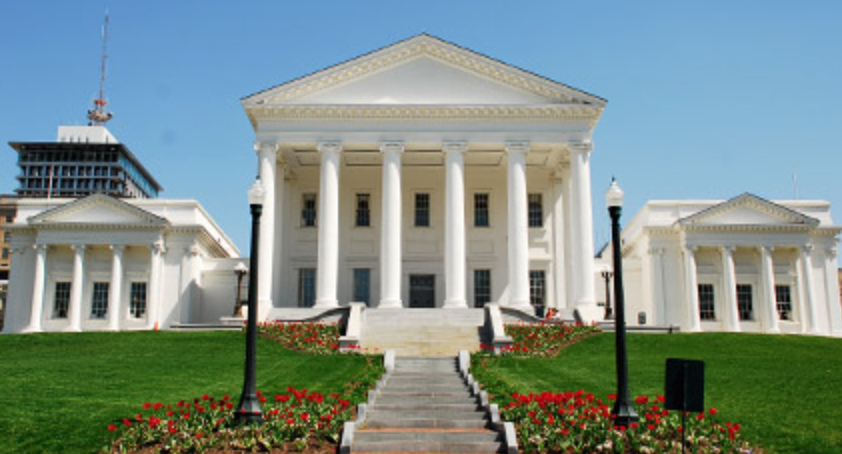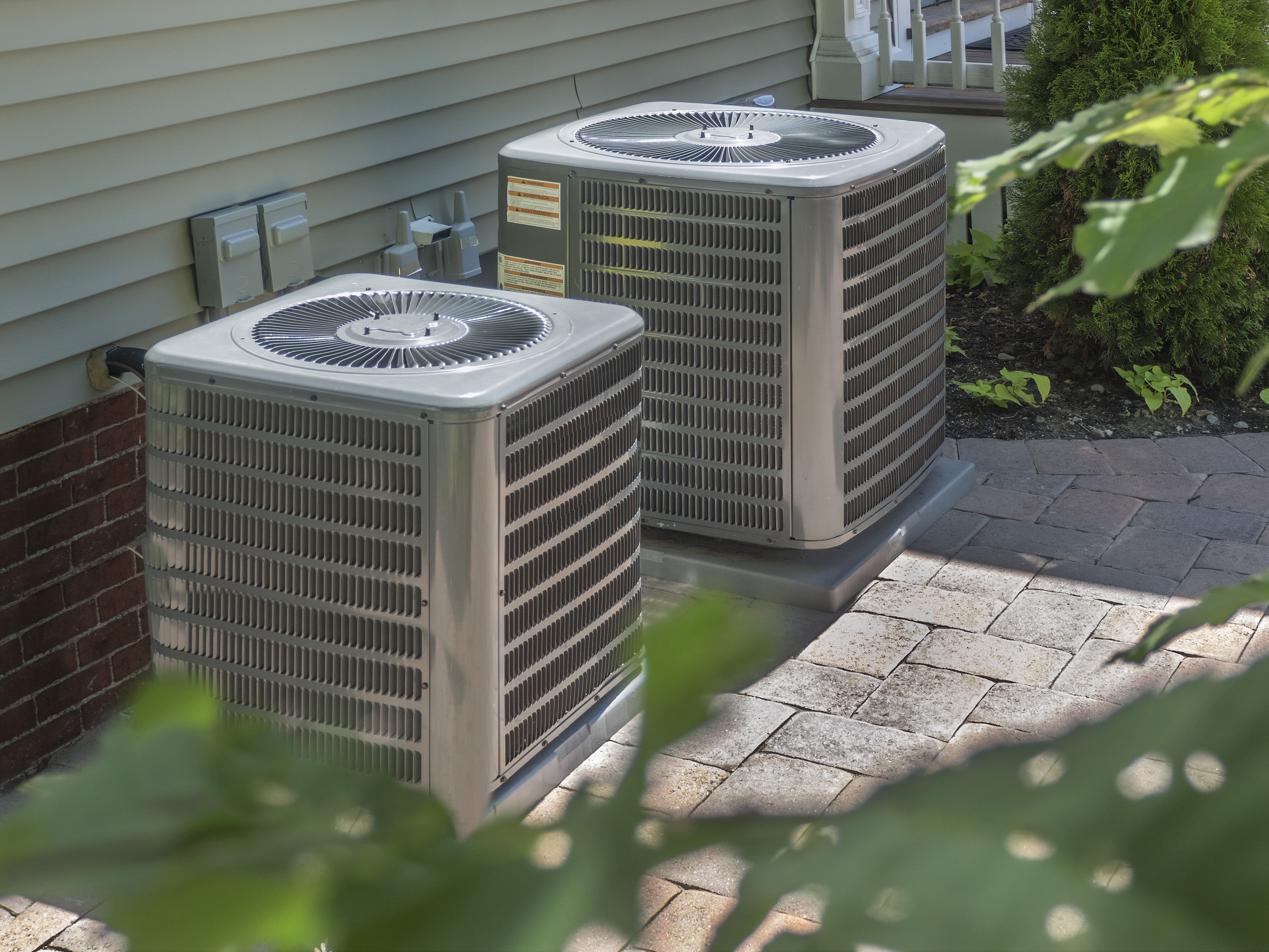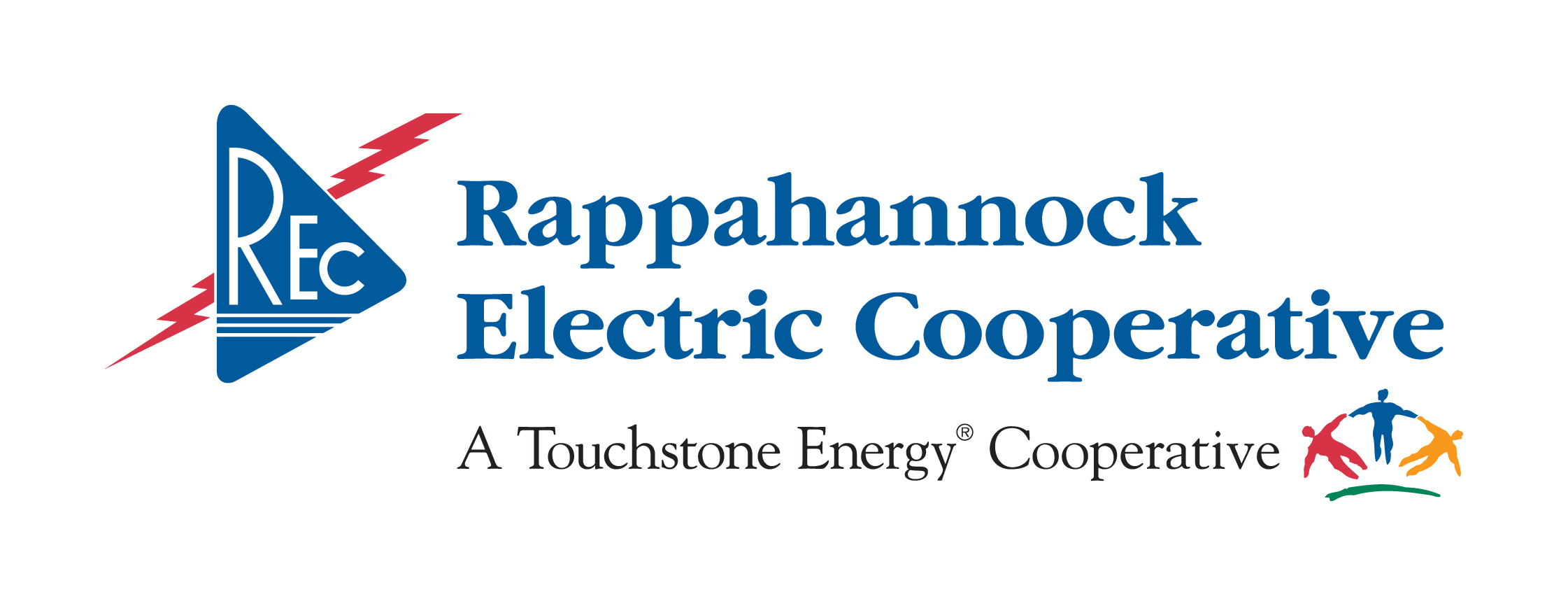We’ve got a great agenda lined up for the May 26th VAEEC meeting, including a presentation by Ryan Hodum of David Gardiner and Associates about Chambers for Innovation and Clean Energy (CICE), a national clean energy information hub and network for local chambers of commerce.
 Created and led by local chambers of commerce, CICE helps fellow chambers and their member companies navigate and prosper in the clean energy and innovation spaces. CICE shares best practices and case studies, connects chambers with sought-after experts and high-level decision makers, promotes the clean energy work being done by local chambers, and helps chambers find incentives and financing for new clean energy initiatives.
Created and led by local chambers of commerce, CICE helps fellow chambers and their member companies navigate and prosper in the clean energy and innovation spaces. CICE shares best practices and case studies, connects chambers with sought-after experts and high-level decision makers, promotes the clean energy work being done by local chambers, and helps chambers find incentives and financing for new clean energy initiatives.
CICE has been active in Virginia. During the annual Virginia Association of Chamber of Commerce Executives conference in March, CICE sponsored a conference session moderated by the Roanoke Regional Chamber of Commerce to discuss the economic opportunity of clean energy in the Commonwealth. Following the conference, local chambers and member companies joined the Virginia Governor’s Advisor for Infrastructure and Development, Hayes Framme, for a conversation about the economic development opportunities of clean energy.
You can check out some local chamber perspectives via videos on the CICE Facebook page.
Join us May 26th to learn more about Chambers for Innovation and Clean Energy.
By: Chelsea Harnish, VAEEC Executive Director
Back in March, the VAEEC provided support for utility energy efficiency programs that were being reviewed by the State Corporation Commission (SCC).
I testified (you can read the testimony here) in favor of Dominion’s three proposed programs that would have benefited a wide variety of consumers, including a rebate program for residential customers who purchase wifi thermostats, an expansion of Dominion’s air conditioning recycling program, which pays consumers to allow their units to cycle during peak demand and finally, a small business improvement program to help this customer base update aging energy infrastructure.
Dominion received notification from the SCC on April 19. Here is a brief summary of the outcome:
- The proposed Residential Thermostat Program was denied.
- The extension for the AC cycling program was approved.
- The proposed Small Business Improvement program was approved for five years, but the budget was reduced by 50%.
The VAEEC also submitted comments (read them here) in support of the expansion of Washington Gas’s CARE program. Initially, the utility was seeking $12.3 million for the proposed expansion of the program over 3 years but the SCC only approved $6 million for the same time period. Despite this setback, the utility says they are excited about the benefits these programs will provide to Virginia utility customers. One exciting note on the new program expansion includes more than doubling the number of customers who can take advantage of the Home Energy Report program, which helps consumers take control of their energy usage and reduce their monthly energy bills.
 Since our last post about PACE (Property Assessed Clean Energy) in Virginia, we continue to move the needle forward on PACE financing in our state. In early April, Virginia Community Capital released the final recommendations from our Oak Hill Fund grant.
Since our last post about PACE (Property Assessed Clean Energy) in Virginia, we continue to move the needle forward on PACE financing in our state. In early April, Virginia Community Capital released the final recommendations from our Oak Hill Fund grant.
Although we concluded that a statewide program administrator would be the ideal solution to ensure rapid advancement of PACE in Virginia, we also concluded that there is no known existing funding to support the creation of statewide program administrator. However, Abacus Property Solutions assisted the Virginia Department of Mines, Minerals and Energy (DMME) in responding to a Department of Energy State Energy Program (SEP) grant that, if awarded, would provide Virginia and partner states, Maryland and District of Columbia, with $500,000 in PACE funding across our region. This three-year grant would help seed and develop statewide PACE efforts including:
- Develop standardized, and low-cost program design and administrative structures throughout the region;
- Increase market awareness of PACE through coordinated outreach to and education of key stakeholder groups whose participation in PACE will accelerate its adoption and growth in the region.
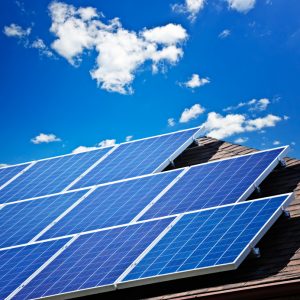 If awarded, the DOE grant would address specifically administrative structure, owner eligibility, financial underwriting guidelines, energy audit and measurement & verification requirements, contractor training and support, capital provider support, and marketing messages and strategy. The VAEEC would receive a portion of this funding from this DOE/DMME grant to implement some of the work in the grant.
If awarded, the DOE grant would address specifically administrative structure, owner eligibility, financial underwriting guidelines, energy audit and measurement & verification requirements, contractor training and support, capital provider support, and marketing messages and strategy. The VAEEC would receive a portion of this funding from this DOE/DMME grant to implement some of the work in the grant.
We feel that our response was strong due to our regional approach across three states and the problem that we are solving with a standardized model. DMME should know by late August or early September 2016 if we were awarded the grant, with funding provided by mid fall.
In the interim, the grant recommendations included the notion that VAEEC develop a comprehensive local government and energy contractor PACE education and outreach effort and offer technical assistance to local governments interested in PACE. An additional recommended task is to build grassroots efforts to compel localities to create PACE programs. The VAEEC is well positioned to build a grassroots campaign of energy service companies, clean energy advocates and property owners in local jurisdictions.
In late February, Arlington County issued a RFP to select a third party PACE program administrator. The creation of a PACE program in Arlington with a third party administrator creates another path forward to advance PACE in Virginia. Other localities can replicate the Arlington model, which calls for a third party to run their program and be paid from origination fees.
Finally, in late March 2016, the Richmond City Council passed a resolution calling for the Chief Administrative Officer to submit a proposal to City Council by January 31, 2017, with recommendations for creating a PACE program. The city is now forming a PACE stakeholder group and will study the Arlington model as part of its work plan to develop recommendations for implementing a PACE program.
Guest Blogger: Abby Johnson, Abacus Property Solutions (VAEEC Member – Individual)
April 2016
Schneider Electric
Business Silver
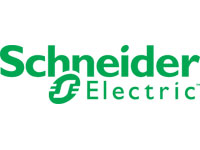 Schneider Electric is the global specialist in energy management and automation. With revenues of ~$30 billion in FY2015, their 160,000+ employees serve customers in over 100 countries, helping them to manage their energy and process in ways that are safe, reliable, efficient and sustainable. From the simplest of switches to complex operational systems, their technology, software and services improve the way their customers manage and automate their operations. Their connected technologies reshape industries, transform cities and enrich lives. They call it “Life Is On.”
Schneider Electric is the global specialist in energy management and automation. With revenues of ~$30 billion in FY2015, their 160,000+ employees serve customers in over 100 countries, helping them to manage their energy and process in ways that are safe, reliable, efficient and sustainable. From the simplest of switches to complex operational systems, their technology, software and services improve the way their customers manage and automate their operations. Their connected technologies reshape industries, transform cities and enrich lives. They call it “Life Is On.”
In the past 23 years, Schneider Electric’s Energy and Sustainability Services team has successfully implemented more than 550 energy savings performance contract (ESPC) projects across the nation and has helped clients around the world save nearly $2 billion. This project delivery method helps publicly funded entities make capital improvements over longer payback periods and offers many long-term benefits such as improved facility efficiency, occupant comfort, financial management and environmental protection.
Two areas where they focus are on schools and cities. Here is an excerpt from their in-depth and compelling Sustainability Mythbusters piece on the hidden value of sustainability for municipalities and schools: 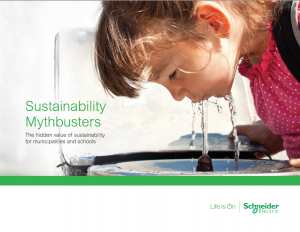
The word “sustainability” may conjure thoughts of recycling, reusable cloth bags and big piles of compost. But for many government entities, sustainability has little relation to these stereotypical green ideas and much more to do with operational efficiency, improved outcomes and a better bottom line. Not only are schools and municipalities adopting sustainability initiatives to satisfy government mandates and public pressures, but they are also using it as tool to become more competitive in today’s economy. In fact, government organizations practicing sustainability are outperforming their peers in areas like job growth, student recruitment, and increased tax revenue. Learn more about how your city, school or university can benefit from a modern sustainability program.
Schneider Electric’s Sustainability Mythbusters piece explores the top 5 misconceptions about sustainability, while highlighting specific case studies, trends, implications and facts around the topic.
1. There is no demand for sustainability in municipalities and schools
2. Sustainability does not make business sense
3. Sustainability is all about being green
4. Sustainability is too expensive
5. The impacts of sustainability are limited
Learn more at www.enable.schneider-electric.com or contact your local representative:
Barry Wilhelm
Schneider Electric
Energy and Sustainability Services, Team Leader
Phone: 804 486 1005 | Mobile: 540 798 3220
Email: barry.wilhelm@schneider-electric.com
Join us for the Spring 2016 VAEEC Meeting, your twice-yearly opportunity to network with other leaders in the energy efficiency industry, hear from speakers about the state of the industry in the Commonwealth, and help chart the course for the VAEEC. Thank you to Dominion Virginia Power for sponsoring the meeting.
Register Now.
When: Thursday, May 26
11am-2pm
Where: University of Richmond, Jepson Alumni Center, Robins Pavilion (directions below)
Working Agenda:
10:30 Registration (Coffee will be served)
11:00 Welcome, Board Nominations and Survey Results (Chelsea Harnish: VAEEC Executive Director)
11:30 General Assembly Recap and Governor’s Executive Committee on Energy Efficiency Update (Hayes Framme: Virginia’s Chief Energy Efficiency Officer)
11:45 Clean Power Plan Update (John Morill: Energy Manager for Arlington County, VAEEC Goverance Board and member of the Governor’s Clean Power Plan Stakeholder Group)
12:00 Lunch and Networking
12:30 Chambers of Innovation (Ryan Hodum: Vice President, David Gardiner and Associates)
12:50 Member Spotlight (Cynthia Adams: Pearl Certification)
1:10 Multifamily Housing Coalition Update (Zack Miller: Policy Director, Virginia Housing Alliance)
1:30 Member Updates (All VAEEC members are invited to share recent successes and innovations)
Lunch will be served.
The meeting is free and open to all. Non-VAEEC members are asked to make a small donation. We encourage you to invite friends and colleagues.
Register Now.
Directions to the University of Richmond’s Jepson Alumni Center:
From I-95 Southbound:
Take exit 79. Stay to the left to merge onto I-195 S, the Downtown Expressway. Continue on I-195 S for approximately two miles. Take the Cary St./VA-147 Exit. Bear right on the ramp and turn right onto Cary Street. Continue straight on Cary for approximately two miles and pass through the intersection at Three Chopt Road. At the bottom of the hill, bear right at the intersection onto westbound River Road. Continue straight for approximately .25 miles and turn right at the “University of Richmond” wall onto UR Drive. Follow signs for “Jepson Alumni Center” turning left onto Crenshaw Way. Proceed on Crenshaw Way to the Jepson Alumni Center.
From I-85 to/or I-95 Northbound:
Take exit 79. Stay to the left to merge onto I-195 S, the Downtown Expressway. Continue on I-195 S for approximately two miles. Take the Cary St./VA-147 Exit. Bear right on the ramp and turn right onto Cary Street. Continue straight on Cary for approximately two miles and pass through the intersection at Three Chopt Road. At the bottom of the hill, bear right at the intersection onto westbound River Road. Continue straight for approximately .25 miles and turn right at the “University of Richmond” wall onto UR Drive. Follow signs for “Jepson Alumni Center” turning left onto Crenshaw Way. Proceed on Crenshaw Way to the Jepson Alumni Center.
From I-64 Westbound:
Merge onto I-95 N toward Washington. Take exit 79. Stay to the left to merge onto I-195 S, the Downtown Expressway. Continue on I-195 S for approximately two miles. Take the Cary St./VA-147 Exit. Bear right on the ramp to turn right onto Cary Street. Continue straight on Cary for approximately two miles and pass the intersection of Three Chopt Road. At the bottom of the hill, bear right at the intersection onto River Road. Continue straight for approximately .25 miles and turn right at the “University of Richmond” wall onto UR Drive. Follow signs for “Jepson Alumni Center” turning left onto Crenshaw Way. Proceed on Crenshaw Way to the Jepson Alumni Center.
From I-64 Eastbound:
Take Exit 183/Glenside Drive south. Continue south on Glenside Drive to the fourth traffic light (Three Chopt Road). Turn left on Three Chopt Road. Continue through the intersection at Patterson Avenue. Continue straight for .5 miles. Turn right onto Boatwright Drive. Wind down Boatwright Drive and bear right at the “University of Richmond” wall – you are now on College Road. Pass by the lake (on the left) and proceed up the hill to the Weshtampton Gate (two brick columns) – turn left into campus between columns and follow signs for “Jepson Alumni Center” turning right onto Crenshaw Way.
From US 60 (Midlothian Turnpike) Eastbound:
Turn left on State Route 147 (Huguenot Road) and continue approximately seven miles and cross the Huguenot Bridge over the James River. At the next traffic light, take a hard left onto westbound River Road. Continue straight for approximately .25 miles and turn right at the “University of Richmond” wall onto UR Drive. Follow signs for “Jepson Alumni Center” turning left onto Crenshaw Way. Proceed on Crenshaw Way to the Jepson Alumni Center.
GPS ADDRESS:
49 Crenshaw Way
Richmond, VA 23173
Thank you to everyone who took part in our survey in February — 50 members and stakeholders shared invaluable feedback on VAEEC’s benefits, structure and priorities. The Governance Board and the Membership Committee have reviewed the results and are factoring in all of the feedback into a review of the organization’s focus, services and membership structure.
Here are some of the key takeaways from our 2016 survey:
- The majority of stakeholders (58%) hear about the VAEEC through email/e-newsletters. Most members (48%) heard about VAEEC through colleagues, another 25% through email/e-newsletters. If you want to be added to our email list, email us at info@vaeec.org.
- A high number of members and stakeholders said energy efficiency is “very important” to their work, with an additional 35% of members and 22% of stakeholders saying it was “important.”
- When asked how they currently engage, 87% of members and 47% of stakeholders say they try to attend both spring and fall meetings (we’ve got another one coming up so be sure to register!), and 87% of members and 82% of stakeholders say they read the e-newsletters. An additional 45% of members encourage colleagues to join, and 35% of members say they participate in working groups as invited.
- The benefits (“Networking at meetings,” “Staying up to date on the latest trends, innovations and policies to inform my job/help grow my business,” “Learning more about the industry,” “Being recognized as a supporter of the VAEEC’s mission,” and “Being part of a body that is driving ee policy/Influence the industry through policy or regulation”) were almost all rated “valuable” in both groups with the latter ranking slightly higher than the others.
- When asked to rate the likelihood they would take advantage of specific offerings in the future, the most popular were members-only events like policy briefings and trainings and monthly webinars. The next most popular was regional happy hours. We’ve already teamed up with Green Drinks to offer that option in Arlington on April 21 and in Richmond in May and are tentatively planning to kick off a webinar series in June.
Great perspectives! We welcome your honest feedback at any time. You can email us at info@vaeec.org.
VAEEC Members Encouraged to Apply, Suggest Nominees, and Offer Support
March 2016: Virginia’s Board of Housing and Community Development will be filling five seats this spring and summer. VAEEC would like to see a strong number of diverse nominations representing the energy efficiency industry.
Why is this important to VAEEC?
Members of the governor-appointed Housing and Community Development Board guide and vote upon the content of Virginia’s triennial update of building codes – including the energy efficiency code. Currently Virginia lags behind our neighbors to the north and south for requiring some of the advancements in efficiency standards and testing. Advanced energy codes are among the most cost-effective methods of saving energy, lowering the total cost of housing, improving health and comfort in homes, and improving quality throughout the homebuilding industry. Learn more about the importance of strong energy codes from the U.S. Department of Energy and the Responsible Energy Codes Alliance.
What can you do?
Please reach out to me at chelsea@vaeec.org if you’d like to be nominated or can suggest a candidate worthy of support.
The seats will be filled by July 1, but the administration is expected to identify candidates soon.
The open seats are in Virginia’s 3rd, 4th, 5th, 7th, and 9th congressional districts, and nominees have to reside in the district to be eligible:
3rd (Bobby Scott’s district- parts of Richmond, Henrico, parts of Tidewater)
4th (Randy Forbes’s district- being redrawn) South-central to South eastern part of VA (Chesterfield, Amelia, Hopewell, Southampton, etc.)
5th (Robert Hurt’s district) Albemarle, Appomattox, Bedford, Charlottesville, Fauquier, etc)
7th (Dave Brat’s district) Ashland, parts of Richmond, Spotsylvania
9th (Morgan Griffith’s district) Southwest, Southside
Learn more about the Board and the nomination process.
VAEEC is official supporting the following candidates. To show your support for these or other nominees, simply fill out a nomination form online. It is listed as “Housing and Community Development, Board of” under “Commerce and Trade.”
3rd District: Andrew Grigsby, Executive Director of the Local Energy Alliance Program and Secretary of the VAEEC Governance Board
7th District: Bob Newman, President & CEO of the Virginia Community Development Corporation
7th District: Tim Bernadowski, Senior Energy Engineer, Siemens Building Technologies
VAEEC 2016 Letter to State Corporation Commission in support of Washington Gas Light Company’s energy efficiency programs.
Chelsea Harnish, Executive Director
Virginia Energy Efficiency Council
March 8, 2016
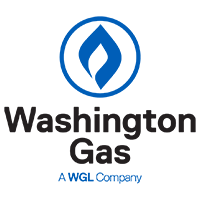
On behalf of the Virginia Energy Efficiency Council, I am pleased to submit comments in support of the application by Washington Gas Light Company (“WGL”) to amend its Conservation and Ratemaking Efficiency Plan (“CARE”) under Case No. PUE-2015-00138.
WGL’s CARE program has provided Virginia ratepayers with cost-effective energy efficiency programs since its inception in 2010. WGL’s proposed amendment to its CARE Plan for 2016-2018 will offer expanded energy efficiency opportunities that will result in real benefits to Virginia residents. With projected lifetime savings of over 15.6 million therms, the proposed energy efficiency programs will not only provide economic and environmental benefits, but will give consumers greater awareness and ability to manage their energy usage, which will lead to increased implementation of energy efficiency technologies and practices all while lowering their utility bills.
We are encouraged by WGL’s innovative portfolio of residential programs, which are designed to reach a broader base of customers across the Commonwealth, including a residential equipment program, online audits, low-income audits and weatherization. In addition, WGL is proposing an expanded home energy reporting program that will provide residents with actionable information and personalized tips for reducing gas usage, while also cross-promoting and connecting residents with the other programs available to them. WGL’s approach to its residential efficiency programs will result in greater customer education and engagement that will deliver measurable and verifiable benefits across a broad and diverse set of its customers.
Please accept this letter of support for WGL’s amendment application for its CARE Plan. I sincerely hope the Commission approves the amended CARE Plan as a prudent use of ratepayer funds. If you have any questions, please contact me.
March 2016 Testimony of Chelsea Harnish to the SCC
Virginia State Corporation Commission
March 8, 2016
Good morning members of the Commission. My name is Chelsea Harnish and I am the executive director of the Virginia Energy Efficiency Council (VAEEC). The VAEEC is a broad coalition that works to assess and support programs, innovation, best practices and policies that advance energy efficiency in Virginia while providing a forum for stakeholder interaction. Before joining the VAEEC, I was the energy campaigns manager for the Virginia Conservation Network.
My working experience has given me an acute awareness and understanding of the energy and conservation challenges the Commonwealth faces, and I am here to support Dominion’s efforts.
The lowest cost electricity is the electricity consumers don’t use. Energy efficiency programs help consumers reduce their consumption, thereby providing a cost-effective energy source.
These utility programs will also help the commonwealth meet its voluntary goal of reducing retail electricity consumption by 10 percent by 2020.
For residents, there is great value in Dominion’s proposed Residential Programmable Thermostat Program. In addition to the rebate customers will receive for the purchase and installation of the WiFi thermostat, the most beneficial takeaway is the usage data that will provide useful information back to consumers about their consumption patterns, including volume and peak usage times, which can in turn inform smarter consumer decisions.
Extending the expiring Air Conditioning Cycling Program, which pays participants $40 a year to agree to have their air conditioning units cycle during peak summer days, is also imperative for Virginia. While I don’t have stats on the success of the program, I do know that having consumers cycle their air conditioning during peak demand is one way our utilities’ providers can help manage through high peak periods.
On the business side, the Small Business Improvement Program will be an important addition to Dominion’s efficiency portfolio because it focuses on a market that is traditionally difficult to reach through efficiency programs. The program will allow participating businesses to update aging energy systems with more cost-efficient versions at a fraction of the cost. Updating infrastructure will allow businesses to save money by operating more efficiently and potentially allow them to reinvest those savings to grow their business.
On behalf of the Virginia Energy Efficiency Council, I sincerely appreciate the opportunity to support these practical yet meaningful energy efficiency programs. The proposed programs are worthy of endorsement and I hope we can all experience the benefits of increased energy efficiency throughout the Commonwealth of Virginia. Thank you for your consideration regarding this matter.
March 2016
Featured Member of the Month: Rappahannock Electric Cooperative (REC)
Business Gold Member
 Rappahannock Electric Cooperative (REC) serves more than 160,000 homes and businesses across its 22-county service area, which stretches from the West Virginia border in Clarke County south to near Charlottesville and east to West Point. As a not-for-profit, consumer-owned utility, REC is committed to providing value to its members. While reliable and affordable electricity is the foundation of REC’s mission, support to local communities, consideration of the environment, and service to its members complete REC’s value equation.
Rappahannock Electric Cooperative (REC) serves more than 160,000 homes and businesses across its 22-county service area, which stretches from the West Virginia border in Clarke County south to near Charlottesville and east to West Point. As a not-for-profit, consumer-owned utility, REC is committed to providing value to its members. While reliable and affordable electricity is the foundation of REC’s mission, support to local communities, consideration of the environment, and service to its members complete REC’s value equation.
“REC’s Core Values are Caring, Integrity, Respect, and Service,” says David Koogler, REC vice president of member and external relations (and VAEEC Governance Board member). “Adhering to those values means more than just selling electricity. We want our members to use electricity efficiently. Wise and efficient use of electricity helps consumers receive more value for their energy dollars, results in more satisfied consumers, and conserves natural resources,” explains Koogler.
The Cooperative encourages and facilitates energy efficiency through multiple communication channels, including social media, traditional advertising, Cooperative Living – a very popular magazine exclusively provided to its members, bill messages, well versed agents in its contact center, numerous online options, and phone and on-site energy consultations. An excellent example of the variety of REC Efficiency Programs and advice is found in the pages of the current issue of Cooperative Living.
 REC recognizes that the first step toward efficient use of electricity is to increase awareness of energy use. An innovative program called myusage.com helps create that awareness. Members enrolled in the myusage service can receive daily usage information via email or alerts when usage exceeds preset boundaries. The program overlays weather information to help explain why usage varies from day-to-day. If daily usage increases without a corresponding change in weather, the consumer is alerted to potential problems, such as a heat pump operating in the emergency mode, and can take corrective actions sooner, before receiving an unusually high monthly bill.
REC recognizes that the first step toward efficient use of electricity is to increase awareness of energy use. An innovative program called myusage.com helps create that awareness. Members enrolled in the myusage service can receive daily usage information via email or alerts when usage exceeds preset boundaries. The program overlays weather information to help explain why usage varies from day-to-day. If daily usage increases without a corresponding change in weather, the consumer is alerted to potential problems, such as a heat pump operating in the emergency mode, and can take corrective actions sooner, before receiving an unusually high monthly bill.
Visit the Energy Center at myrec.coop to learn more about the myusage service and REC’s other efficiency programs.
![]() Created and led by local chambers of commerce, CICE helps fellow chambers and their member companies navigate and prosper in the clean energy and innovation spaces. CICE shares best practices and case studies, connects chambers with sought-after experts and high-level decision makers, promotes the clean energy work being done by local chambers, and helps chambers find incentives and financing for new clean energy initiatives.
Created and led by local chambers of commerce, CICE helps fellow chambers and their member companies navigate and prosper in the clean energy and innovation spaces. CICE shares best practices and case studies, connects chambers with sought-after experts and high-level decision makers, promotes the clean energy work being done by local chambers, and helps chambers find incentives and financing for new clean energy initiatives.
 Since
Since 



